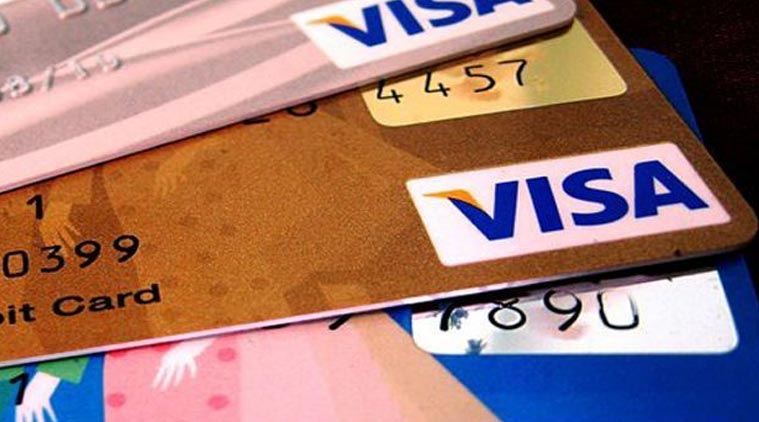Stay updated with the latest - Click here to follow us on Instagram
Suggestions range from curb on currency notes, cash-back incentives
Public response to the Centre’s proposed guidelines to encourage electronic payments on www.mygov.in the have been largely positive with many suggesting the complete withdrawal of currency notes.
 The finance ministry is hopeful that its proposed guidelines to encourage electronic payments would help reduce the cost of cash transactions to the economy as well as discourage use of black money.
The finance ministry is hopeful that its proposed guidelines to encourage electronic payments would help reduce the cost of cash transactions to the economy as well as discourage use of black money.
Over the next few months, our attitude towards cash payments could see a marked shift with the government planning to introduce curbs on such transactions as well as promote usage of debit and credit cards.
As much as 96 per cent of all transactions in the country are currently in cash, according to the Internet and Mobile Association of India (IAMAI). Also, a recent survey by MasterCard and The Fletcher School’s Institute for Business in the Global Context (IBGC) revealed that less than 10 per cent of Indians have ever used any kind of non-cash payment instruments.
The finance ministry is hopeful that its proposed guidelines to encourage electronic payments would help reduce the cost of cash transactions to the economy as well as discourage use of black money.
[related-post]
“Draft measures for facilitating electronic transactions have already been floated. Public comments have come in and final guidelines are likely to be announced in a couple of months – by October or November. Following that, banks and customers would be given some time to comply with the measures and bring in systems for such payments,” said a senior finance ministry official. Surprisingly, the public response to the draft proposals on http://www.mygov.in have been largely positive with many suggesting the complete withdrawal of currency notes or high denomination notes of over Rs 100.
Suggestions have also come in for digitising micro currency transactions of up to Rs 100 that are largely used for daily expenditure, a cash-back facility for using credit or debit cards as well as strengthening infrastructure such as installing more ATM and point of sale (POS) machines for such payments.
Others have suggested steps such as electronic payment of medical fees, bills in five star restaurants and bars as well as facilitating electronic payments at not only the retail but also B2B segment.
IAMAI has recommended including Prepaid Payment Instruments and NFC-enabled payments in its definition of electronic payments and capping the interchange fee rates for Visa, MasterCard and other international debit cards at a lower rate than currently applied in the market.
Similarly, payments solutions provider Oxigen Services Ltd has backed the draft proposal to permit non-banks to install white label POS terminals and has also suggested creation of a ‘digitisation fund’ be created for digitisatisation through a nominal charge from banked payment transactions of all services to support infrastructure building in unbanked rural areas.
The draft guidelines, released last month had proposed electronic payment of transactions of over Rs 1 lakh, and levying a nominal cash handling charge on high value transactions, income tax rebates for merchants as well as customers using electronic payment options and waiving away the convenience fees charged for electronic payments on railway tickets, petrol and diesel or cooking gas.
The MasterCard and IBGC survey on the ‘Cost of Cash in India’ further revealed that the value of notes and coins in circulation as a percentage of GDP in India is 12.04 per cent, compared to 3.93 per cent in Brazil, 5.32 per cent in Mexico, and 3.72 per cent in South Africa. However, experts have a word of caution about the use of credit and debit cards.
While new security features such as chip-plus PIN cards as well as mandatory punching of PIN when swiping credit cards provide an extra level of security, experts stress on the oft repeated caution of not sharing your PIN number.
Further, in the case of loss of card or a fraudulent transaction, you must immediately report it to the credit card company or bank to ensure that your card is blocked. The finance ministry has also proposed that fraudulent transactions would be reversed within a three month period.
Most importantly, payments to your credit card company must be made on time to ensure that it does not impact your credit history.
“We believe this is a positive move encouraging more people to use electronic platforms for payments, thereby allowing more money to pass through formal financial channels … But consumers should be careful when sharing their physical card for making payments at merchant establishments like restaurants and petrol pumps, so as to prevent fraud. Additionally it is important to be mindful of spending within one’s available credit card limit, as delayed payments or an inability to pay credit card dues, is likely to impact the individual’s credit score,” said Mohan Jayaraman, managing director, Experian Credit Information Company of India and country manager, Experian India.







